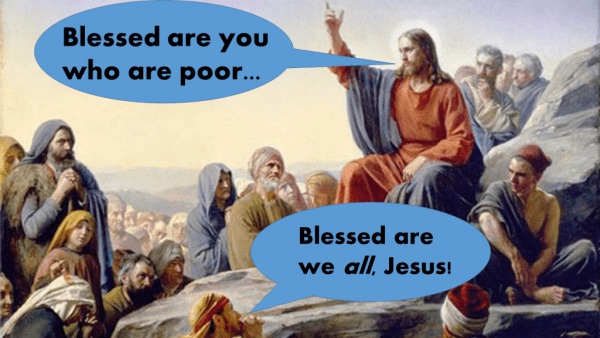Does Jesus really expect us to “turn the other cheek”?

Here’s the full text:
You have heard that it was said, ‘Eye for eye, and tooth for tooth.’But I tell you, do not resist an evil person. If anyone slaps you on the right cheek, turn to them the other cheek also.And if anyone wants to sue you and take your shirt, hand over your coat as well. If anyone forces you to go one mile, go with them two miles.Give to the one who asks you, and do not turn away from the one who wants to borrow from you. (Matt. 5:38-42)
Doesn’t Jesus’ teaching encourage docile passivity, easy acquiescence to injustice and violence?
The answer? No.
Understood in it’s context, this teaching should be seen as an expression of nonviolent activism. Glen Stassen and David Gushee, in Kingdom Ethics, explain:
Turning the other cheek has been misunderstood in Western culture that thought there were only two alternatives—violence or passivity. But since Gandhi and King, we can appreciate Jesus’ teaching better. In Jesus’ culture, “to be struck on the right cheek was to be given a hostile, back-handed insult” with the back of the right hand. In that culture, it was forbidden to touch or strike anyone with the left hand; the left hand was for dirty things (Stassen, Just Peacemaking, 64-65, 68-69). To turn the other cheek was to surprise the insulter, saying, nonviolently, “you are treating me as an unequal, but I need to be treated as an equal.” Jesus is saying: if you are slapped on the cheek of inferiority, turn the cheek of equal dignity (138-139).
And by the way, Stassen and Gushee also point out that “do not resist an evil person” (or “evildoer,” in other translations), could also be (and should be) translated: “by evil means.” So, the full line could (should!) read: ” But I say to you, do not retaliate revengefully by evil means.”
Because actually, it’s always a good idea to resist an evil person. Jesus did that a lot.
That changes things a bit, doesn’t it?
Keep up with the conversation! Follow/like Unsystematic Theology on Facebook











